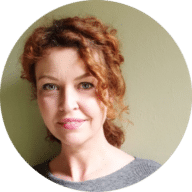Cultural Attaché Roel van de Ven in London: ‘Brexit is Causing Inconvenience and Affects Our Cultural Relations’
The Cultural Attaché is a series of interviews by DutchCulture, the Dutch network and knowledge organisation for international cultural cooperation, with cultural attachés of the Netherlands. How do these attachés help Dutch art and culture? What were their expectations when they were posted abroad, and what challenges have they faced? This edition: Roel van de Ven in London.
You took up the post of ‘Head of Public Diplomacy, Press and Culture Department’ (hereafter: cultural attaché) at the Dutch Embassy in London a little over two years ago. What were your expectations regarding this position?
Roel van de Ven: ‘I expected and hoped that this job would be very different than my job at the Ministry of Education, Culture and Science, and this proved to be so. What I particularly enjoy is that my position brings me closer to the cultural sector; much more so than in my former jobs at the Ministry and the Dutch Permanent Representation with the EU in Brussels. I expected that my earlier professional experience and love of culture would be of value, but whether that is true is for others to judge.’
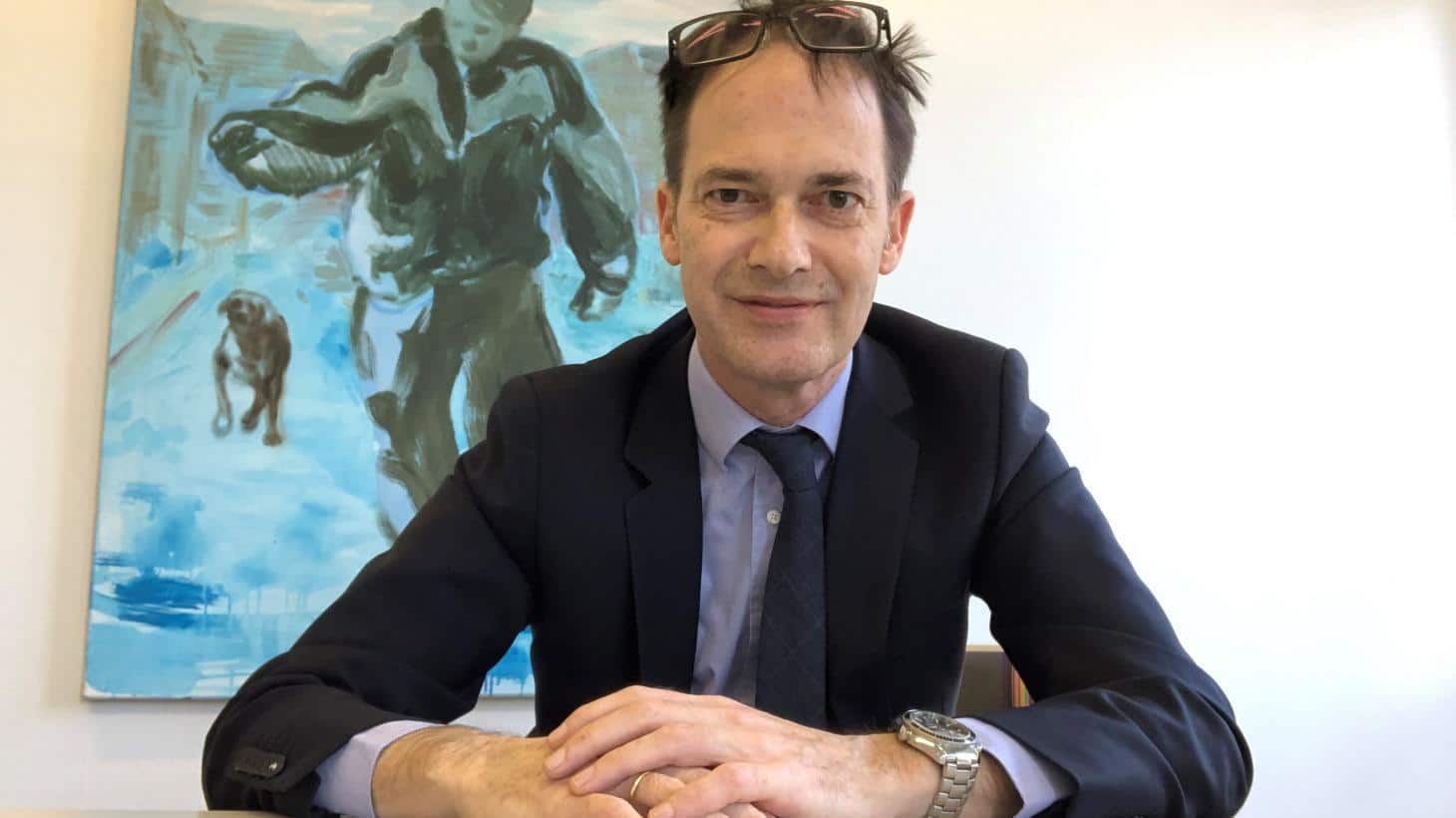 Roel van de Ven
Roel van de VenAnd how did it actually turn out in practice, once you started the job?
‘I found myself working with colleagues who had been at the Embassy for a long time. And I realised how difficult it must be to have a new manager every four years. Of course it is good to have colleagues who know how things work and who have their own network and knowledge of the local sector. But it can also be difficult to change certain habits. In my view, international cultural policy will benefit from asking questions like: are we doing the right thing, and in the right way? I see it as a strength to discuss our work and then perhaps to conclude that we should do things differently. For example, to request more expert advice before deciding on funding applications.’
Did you encounter any other challenges?
‘We are in a constant state of change, and not just because of Brexit. I’ve had about eleven different people working here in the last two years. Every half year we get new temporary colleagues, in the form of government trainees and interns. This is exciting, as young people always contribute a lot of energy. But it can also be tiring to work with a constantly changing staff. The good news is that our department will expand next year, with two new permanent colleagues coming in.’
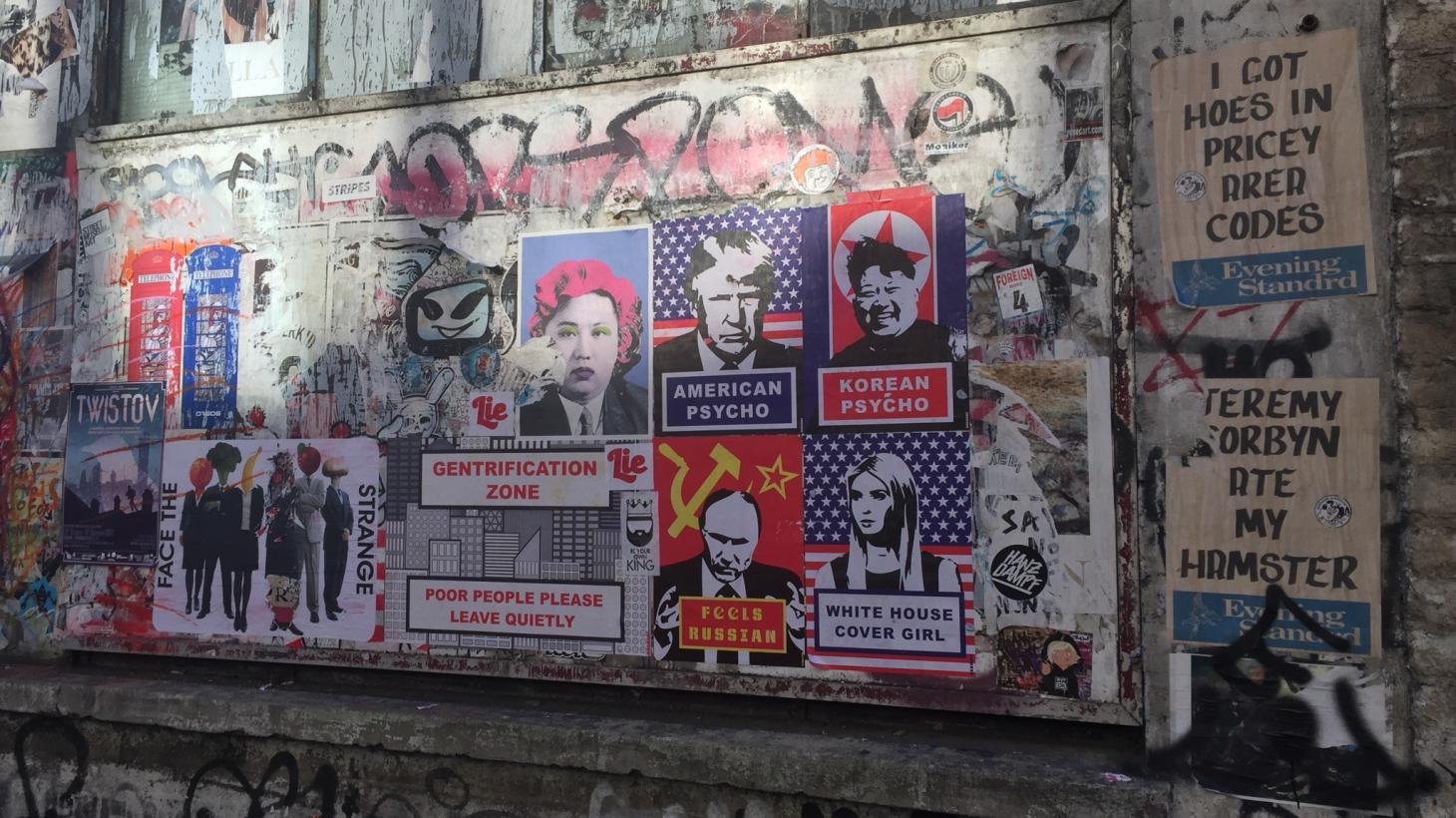 Wall in Shoreditch, London
Wall in Shoreditch, London© Roel van de Ven
Speaking of challenges: how does Brexit affect your work?
‘The real obstacles have yet to appear, so we are preparing but don’t actually know what will happen. This is causing some inconvenience, and in this way Brexit is affecting our cultural relations. Whenever you talk to Brits, the subject will usually turn to Brexit within minutes. Many fear losing good European friends. My message is that this will not happen. We are North Sea neighbours and have so much in common. But at the same time I say that now is the time to invest even more in our relationship. For us, the Dutch, there is a lot to be gained, also in the cultural sector. There are so many venues here where makers can showcase their fashion, exhibit their work, stage their performing arts… The UK is full of opportunities and inspiration.’
People here have mixed feelings about our straightforward nature
And how different is it, compared to the Netherlands? Can you name some cultural differences that may affect artists and creatives with the ambition of working in the UK?
‘It is quite striking how unconcerned Dutch people are about their own bluntness. To give just one example: the Amsterdam Fringe had the slogan “elf dagen podium ku(ns)t”. [Ed: Roughly, “eleven days of performing arts crap”, so it’s a vulgar play on words that makes fun of the pretentiousness of performing arts.] Julian Caddy, the director of Brighton Fringe, told me that this would never be possible in the UK. It would be considered improper and obscene. People here have mixed feelings about our straightforward nature. They like that we are strange and different, but they also think it is bad manners. I won’t say that artists should change, but it is good to be aware of this difference.
 Amsterdam Fringe Festival
Amsterdam Fringe FestivalArtists shouldn’t change because of expectations, but perhaps they want to change because of the different political climate. In your opinion, is the role of culture shifting or should it shift, in the light of the turbulent political reality in the UK?
‘Our ambassador, Simon Smits, says that culture and education are the ‘safe anchors’ of our relationship. I fully agree. The arts are predominantly seen as positive and Dutch culture is very much appreciated in the UK, as is our collaboration in education and science.
For me, it remains important that we do not see culture only as some kind of tool, as an instrument for maintaining and deepening relationships. That is one aspect, but certainly not the most important one. Art is free and we, the government, should always remain at an arm’s length. Art is and should be an autonomous force in society and we should not muddle it with external objectives.’
What do you see as the biggest challenge in your work?
‘The biggest challenge is to realise added value by forging connections, both at the personal and institutional level. To have impact we need to work closely with our Dutch colleagues at the Dutch cultural funds, sector institutes and at DutchCulture. We want to be a catalyst. That is our foremost challenge.’
Art is and should be an autonomous force in society and we should not muddle it with external objectives
Where do you seek this added value and what can you do to become a catalyst?
‘When I started my job I noticed that some of our efforts did not produce much added value. Handing out very small grants of just a few hundred euros with limited impact but with an enormous administrative burden was a striking example. That is why the Dutch Embassy in London no longer accepts project proposals requesting less than 2500 GBP. Each project we support has to have both quality and impact. Impact does not necessarily mean reaching large audiences, but can also be personal artistic development, for example.
We also seek added value by linking up institutions and people in search of a catalyst effect. We have an extensive network and we want to share our knowledge. If institutions and people find each other, that’s great. If the sector does not need us after that, then that’s a success for us.’
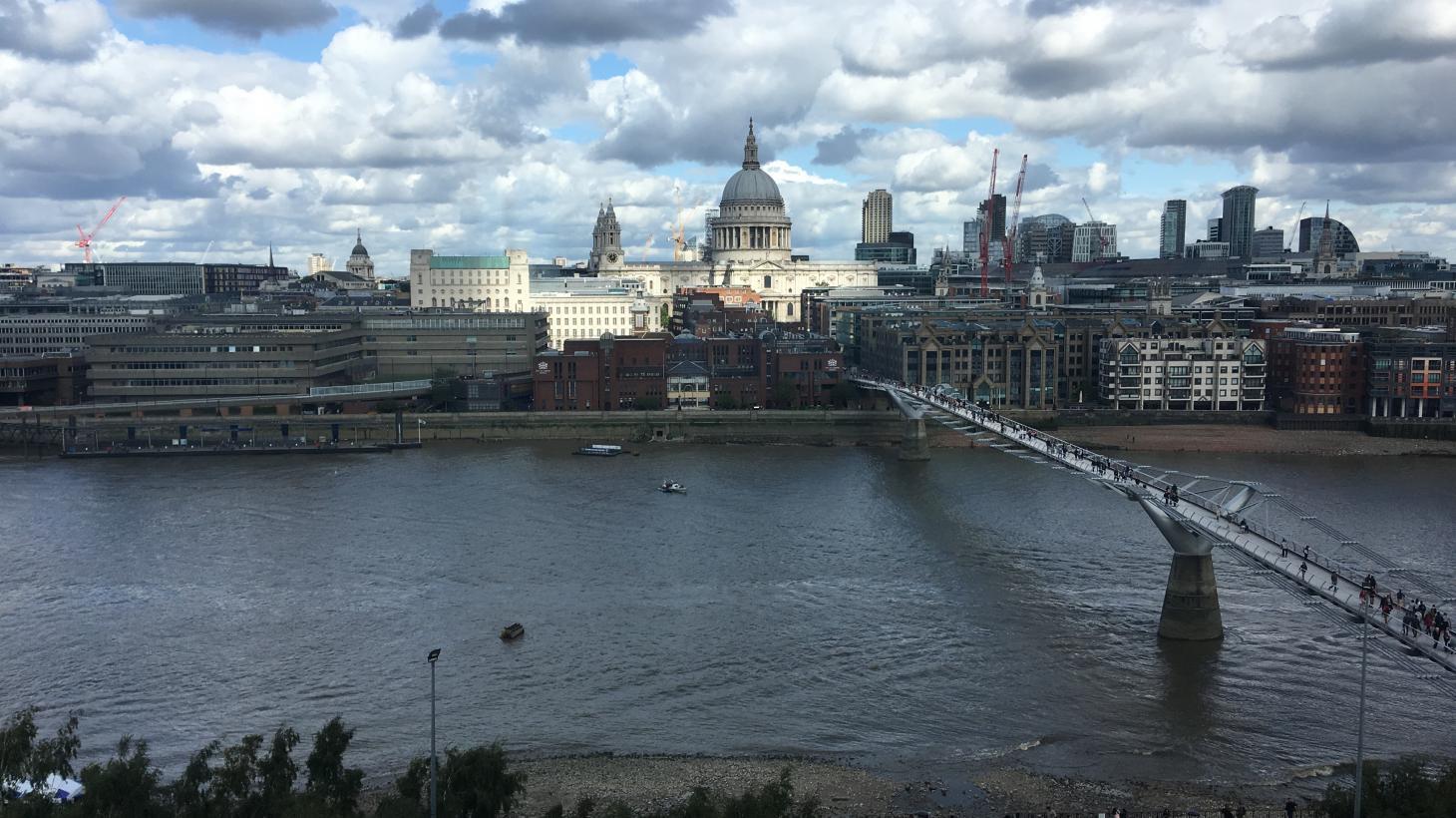 London skyline seen from Tate Modern Gallery
London skyline seen from Tate Modern Gallery© Roel van de Ven
How do you build and maintain this knowledge and network?
‘My personal goal is for my future successor to be able to build on the consolidated relationships and knowledge. My local colleagues are crucial to this, as they stay on after I leave. The database of DutchCulture should also be an important reference. Besides this, we are also building a database of relevant British institutions and key figures. We cherish our Dutch cultural professionals working in the UK, as they can be ambassadors for the relationship between the UK and the Netherlands. We did something similar by founding the Dutch Academics in the UK (DANinUK), which is a network of Dutch academics working at UK universities. The network now consists of some 300 people. I initiated this from the Dutch Embassy and it will be up and running independently starting January next year.’
If you work in the cultural sector, you must be paid properly
Seeking added value, consolidating local knowledge and networks, and connecting people are important aspects of your strategy as a cultural attaché. Is there anything else that you find important in your practice?
‘Let me give you an example of good practice. New Dutch Writing was launched recently. It is a large-scale project by the Dutch Foundation for Literature involving more than seventy festivals and events in the UK. It is not a single shot, but a strategically developed programme by Martin Colthorp, a British professional commissioned by the Dutch Foundation for Literature.
Another question I find very important is the nationality of artists and how this relates to funding. The Dutch cultural funds are struggling with this issue as well, as art practices are often international. So how important is the foreign passport of an artist living in the Netherlands applying for funding to exhibit work in the UK? And should we fund Dutch artists who reside in the UK? Our policies do not offer clear answers to these questions.
Finally, let me mention the issue of artist fees. I am personally pleased that Dutch policy permits the payment of artist fees, but this has not yet been incorporated in all the criteria. This issue is also something near to my heart. My father is a professional photographer and he also experienced how some institutions consider exposure itself to be the reward. Of course recognition is important. For my father this has come, as he now has a solo exhibition in Rotterdam’s Kunsthal. But his experience helps me to understand and to advocate for artists and other cultural entrepreneurs. If you work in the cultural sector, you must be paid properly.’
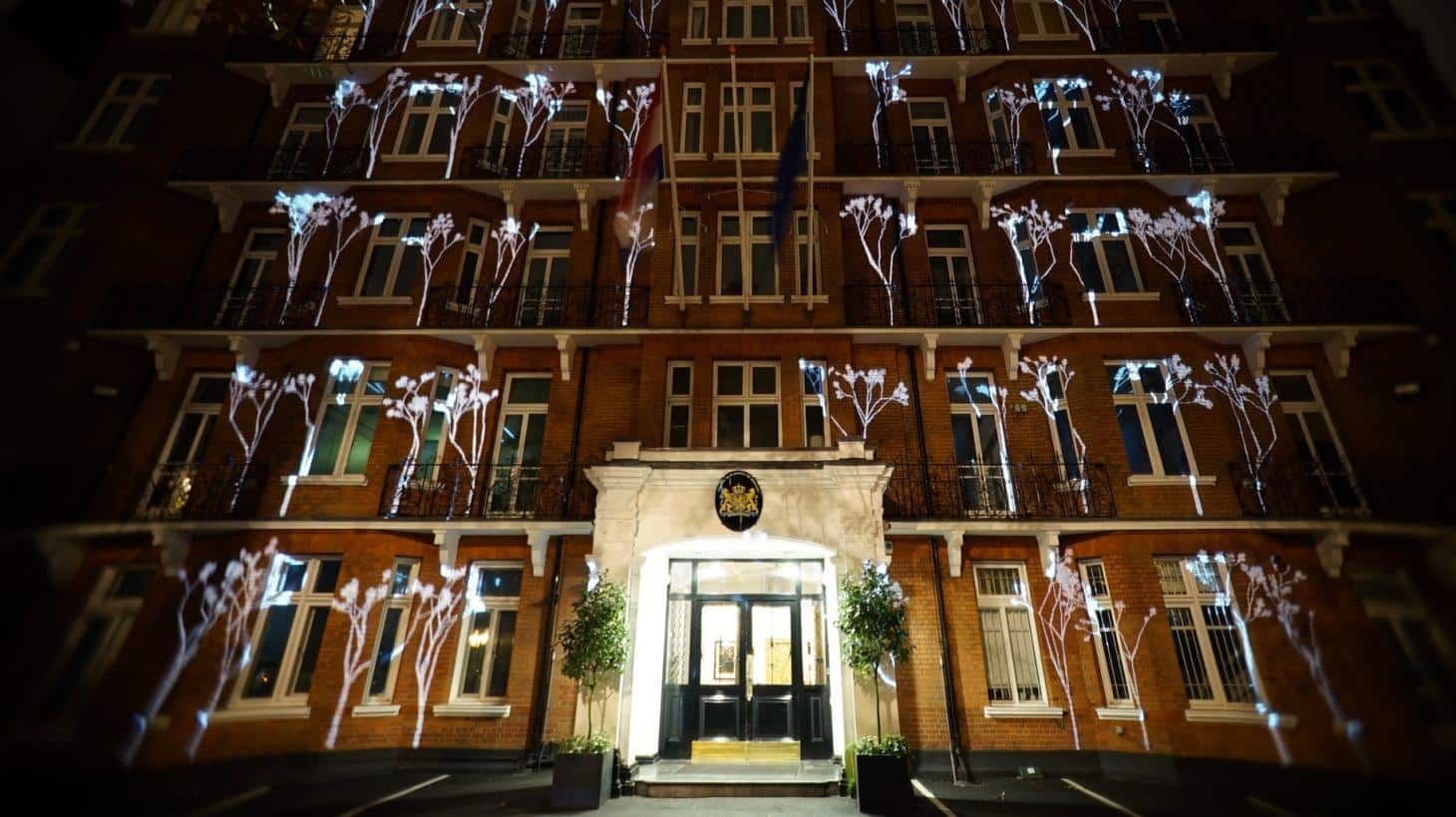 'Lightweeds' by Simon Heijdens
'Lightweeds' by Simon HeijdensNormalising fair payment in the cultural sector is indeed something to be proud of. This prompts me to ask: which achievements are you most proud of as a cultural attaché?
‘Let me mention a particular project by Simon Heijdens. We commissioned new work to celebrate the State Visit in October 2018. His light art Lightweeds was projected on the façade of the Dutch Embassy. It was wonderful to work so closely with the artist. Simon sets the bar very high, he worked night after night to get things going. I joined him on these nights. I am proud that Simon told me that the assignment was very significant, also for acquiring new commissions and assignments in the Netherlands and the UK and further abroad.
I have a good feeling in terms of how we work with the British press to promote the culture of the Netherlands. That relationship has resulted in many positive articles. I would also mention Mindscapes, though it is still on the drawing board.’
Let’s talk about Mindscapes for a moment. It is a programme to be coordinated by DutchCulture within the framework of the so-called programme funds offered by the Ministry of Foreign Affairs and the Ministry of Education, Culture and Science.
‘The goal of the programme funds is to interconnect and support the Dutch cultural ambitions in the focus countries selected by the International Cultural Policy. Mindscapes is a joint UK-Dutch programme on culture and well-being involving several cultural disciplines. When we started working on this project, we looked for opportunities outside of London. This is how we discovered the Sick! Festival in Manchester. Sick! is a bold and interesting festival that combines the fields of health and mental well-being with professional arts. It is a very inspiring approach and I am proud that they became our collaboration partner for Mindscapes. The result of our collaboration will be presented next year in Manchester and Rotterdam. I hope that this will form a stepping stone to further cooperation between Manchester and the Netherlands.’
I discovered that my talent for dance was not exceptional. Although I still go roller dancing every weekend!
Finally, some brief questions. Which cultural activities are you looking forward to this year?
‘The Dutch offering at Brighton Fringe Festival is something I am going to enjoy again. Brighton Fringe offers the best of Amsterdam Fringe, so it’s an international opportunity in the “Country of Fringe”.’
Tell us something about your work that is not widely known.
‘Most people think that the cultural attaché devotes all his time to culture. This is not true. I also attend a lot of non-cultural events like city link projects, celebrations, meetings with alumni, just to name a few. It is fun but hard work.’
Tell us something about yourself that not many people know.
‘I always wanted to become an actor or a ballet dancer. I even attended the Royal Academy of Dramatic Art’s summer programme in London. But I soon discovered that my talent for dance was not exceptional. Although I still go roller dancing every weekend!’
Want to know more about Dutch cultural activities in the UK? Read the article What do the numbers say? Edition United Kingdom or check out the complete overview of Dutch cultural activities in the United Kingdom in the database of DutchCulture.
If you are a cultural professional from the Netherlands who wants to go to the UK, feel free to contact UK advisor Tijana Stepanovic.

